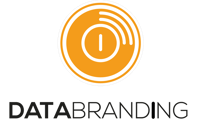On previous articles, we stated the importance of having a website in order to carry out a Digital Marketing strategy. What we now need to talk about is what kind of website should we have if we want our marketing strategy to be more effective.
Kinds of Website: Dynamic and Static
We can find on the Internet many kinds of websites, different formats and designs, there's plenty enough to satisfy everyone's tastes and needs yet, all of them can be classified within two basic kinds of sites, according to the interaction the visitor may have with them: dynamic and static.
Static Website
We'll call static sites all those sites that, once they are designed (regardless of how much or little was invested in their initial design) they don't offer either much interaction with their clients or constant content updates.
These sites:
- Are done "once and for all". We might find interesting information, images, design and content but nothing else. If you visit this site today, in a week or in six months, you'll find nothing new. Time passes by and content stays just the same, even outdated sometimes.

- They don't offer updates so customers don't have a need to visit them regularly. They only come to them when they look for specific-static information (contact, products, prices). In other words, they are some kind of electronic brochure or catalog, and nothing else. The downside of this? Clients don't keep constant communication with the page, they don't interact, there is no clients follow-up. They just come to the page, find the info they were looking for (which is always the same) and leave. Goodbye customers!
- Their design might have been expensive (if you invested in pictures/video/quality content) but in the end, that first investment you made, will go to waste, since clients will come in and out of the site as if it was a store they would walk into, but found no one to sell anything to them, no one to interact with, ask questions, talk about deals and the such.
- They are ignored by search engines such as Google, and this might be the biggest downside of this kind of sites. If you've already invested in making a site, why let go the opportunity of appearing as one of the first organic results in Google? It just doesn't make much sense... If you want people to be directed to your website when asking questions in Google, you have two options:
- Pay for it (Google Ads)
- Have Google offer your site without paying for it (organic results) thanks to the updated and of good quality content that you offer on your page. You are always working on what you offer and Google knows it.
To make a long story short, you may have a fantastic site regarding appearance and design yet, if it isn't dynamic, if it isn't alive, you won't get much for the resources you invested on it. A site such as this lets you "be there" for when people specifically look for you page but it just doesn't work for a overall Digital Marketing strategy.
Dynamic Site
A dynamic site, aside from letting you be present on the internet so when customers specifically look up for your page, they find you (which is the only solution that a static website provides) , it also offers other benefits which eventually, will translate into sales:
- Having a constantly updated information on your site will have clients coming back for news. By doing so, they'll start having a virtual relationship with you and, with time (and strategy), this might turn into sales.
- Your clients know more
 about your product or service because you've been educating them with quality content about it. How's this good for you? Your clients will recognize the real value of what you do thanks to the detailed information that you've shared with them on your site. If they recognize the value of what you do, they'll be more willing to pay for it.
about your product or service because you've been educating them with quality content about it. How's this good for you? Your clients will recognize the real value of what you do thanks to the detailed information that you've shared with them on your site. If they recognize the value of what you do, they'll be more willing to pay for it. - Search engines such as Google will organically offer you site as a "best result" because they'll know that you constantly work on the creation of updated content and thus, you'll better solve the questions that users make on their engines.
- You keep and open and permanent communication with your clients. A dynamic website must be backed by a software that would allow you to manage all this activity that will be generated with clients. Being a dynamic page, you can periodically send premium content to your contacts; make them part of a new campaign that adapts to their specific profile and interests; keep an open communication with them via e-mail in order to answer all of their questions and concerns... all of this in an automated way! This will all translate into having well-informed clients who are happy and satisfied with your service and your prompt response, who trust you.
Which Site do You Prefer?
Well that'll all depend on what you want to get from your site. If you just want to "be there" in a static way, with no marketing strategy to make the best out of your page, then your option is clearly number one.
Now, if beside "being there", you also want to take full advantage of the effort that you've put in creating your site, then you should consider carrying out a whole Digital Marketing strategy, for which you'll need to build a strong, dynamic site, a site that's alive. Yes, it implies a constant effort of publication and of communication with clients but don't forget that all that effort will eventually translate in a bigger number of sales. This is the main reason why most companies are changing their marketing strategy from the traditional one, to the new digital marketing.
Don't stay behind! Start planning your marketing strategy so that, based on this strategy, you choose the design of your website.

 Paulina Romero H
Paulina Romero H